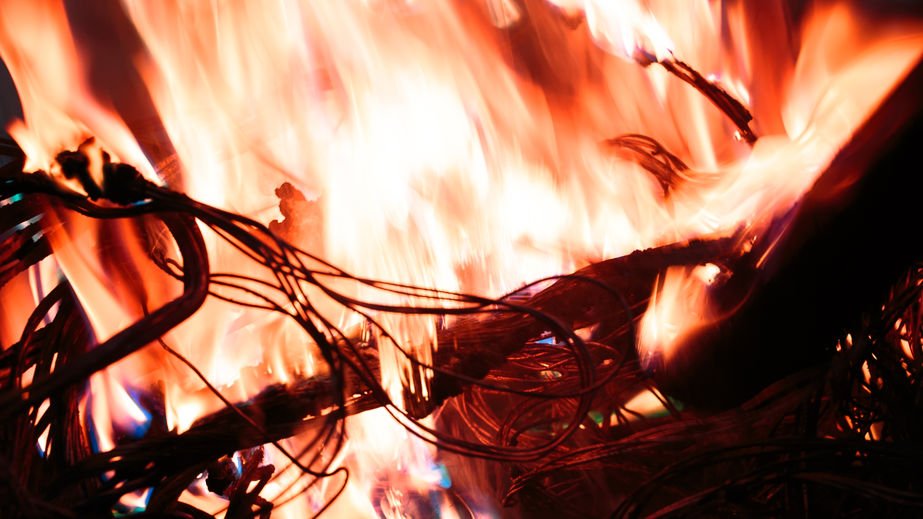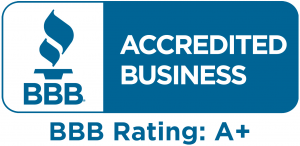In North America, aluminum wire was used for wiring entire houses for a short time from the 1960s to the mid-1970s, when copper prices in that period were high. Thousands of homes in Greater Vancouver are still using aluminum wiring. Unfortunately, there are safety problems with this once-popular wiring. And sometimes they don’t surface until decades down the road. And it just so happens that “decades down the road is right now!” The most notable hazard is a much higher likelihood of electrical fire.
What makes aluminum wiring a safety hazard?
1) Softness. Because aluminum is a much softer metal than copper, it’s easily nicked or cut. The damaged wire causes local hot spots.
2) Oxidization. When oxidize (rust) forms on aluminum, it increases the wire’s resistance and impedes the flow of electricity. Copper wiring also rusts. You’ve probably seen the green copper oxide that forms on copper. But this type of oxide, unlike the white oxide that forms on aluminum, is electrically conductive. The oxide on aluminum wiring interferes with the flow of electricity and causes overheating.
3) High thermal expansion. Aluminum is prone to change shape at the terminal screws and thus become loose or slowly slide off over time.
Warning Signs
Some of the signs that your aluminum wiring may have connection problems:
– sparks coming from receptacles or switches
– lights that flicker
– circuit breakers that trip for no reason
– unusually warm or warped outlets and switch cover plates
– strange odors in the area of receptacles and switches
– light bulbs that burn out quickly
If the potential safety hazards of aluminum wiring aren’t enough for you, consider the insurability and sellability of your home. Even if your home’s bee insured for many years with the same insurer, they may ask you to have your electrical system inspected in the future. You may then be forced to upgrade in order to prevent an increase in your premiums or even to prevent cancellation of your policy.
Standards
Electrical codes have changed since the 1960s and 70s– and that’s a good thing! Electrical codes are written and upgraded for safety’s sake. Rewiring to fit the present codes is always a benefit. Not only will it make your home safer, it could also affect the value and saleability of your home now or in the future. Although aluminum wiring isn’t usually foremost on the minds of potential buyers, an upgrade to copper wiring can be a good selling feature of your older home.
You may not be keen on the costs of a total replacement of your aluminum wiring with copper, but it may be time for some system upgrading anyway. If you’re like most homeowners, you’re likely watching your home increasingly fill up with electronic devices. These place a larger load on old circuits. If you find yourself continually adding extension cord due to a lack of outlets, think seriously about rewiring to install all the outlets you need. It’s the perfect opportunity to replace those old aluminum circuits.
The same goes for home renovations. If you’re going to open up your walls and ceiling anyway, take advantage of this opportunity, too. It’s certainly cheaper than ripping out and then repairing walls down the road.
Getting it done
Aluminum wiring replacement isn’t a safe a do-it-yourself project. Hire only a licensed electrician to work on circuits with aluminum wiring. When it comes to aluminum wiring, a do-it-yourself project gone awry threatens to throw away the benefits of rewiring– and the safety of everyone in your home.
Concerned about your home’s aluminum wiring or any other safety issues? Make a safe call. At Stapleton Electric we’re here to help. Phone 778-985-9395 or leave a message for us here.


